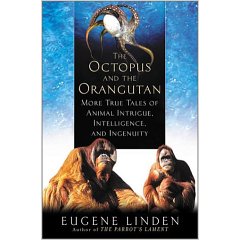I posted the following in response to discussion on the North Texas Objectivist Society forum:
The topic "Objectivism as a Religion" was not quite what I meant. "Objectivism", as defined by Ayn Rand, is a philosophy. What I am advocating is a religion compatible with Objectivism.
Certainly no religion that advocates a belief in the supernatural is compatible with Objectivism. Fortunately for us, the courts have long held that belief in the supernatural is not a required element for a religion. In a nation where not all of the religious believe in the supernatural, a non-sectarian reference by our government to a universal God is an act of religious discrimination.
Ideally a religion compatible with Objectivism would also promote Objectivism. This could be inherent in the rites and rituals. As suggested by John Davis before the recent baby naming ceremony, we discussed which Objectivist elements we might introduce into the ceremony. I proposed words to the effect that in a capitalist society each new child brings new prosperity to humanity as wealth is not simply divided but created by each member of our population.
When we marry and bury our dead, we do not want officiants who will use the event as an opportunity to promote their supernatural beliefs. We want celebrants from our own religion who will speak the words that give us strength and comfort. We certainly do not want them to upset us at that time. Nor do we want to simply ignore the necessity of life event celebrations.
Perhaps more than others, parents need religion. We need a support group to promote our ideas such as naturalism and capitalism in an environment dominated by the supernaturalists and collectivists. We need to immunize them from the memes that might infect them in the future. We need to provide them with social opportunities. We need our own holidays to celebrate with the children that instill our own values.
"Science, as a system of discovering, organizing, and applying mutual knowledge, is already unified and universal in principle, though its efficiency as an organ of the human species could still be much increased. It remains for man to unify and universalize his religion. How that religion will take form -- what rituals or celebrations it might practise, whether it will equip itself with any sort of professional body or priesthood, what buildings it will erect, what symbols it will adopt -- that is something which no one can prophesy. Certainly it is not a field on which the natural scientist should venture. What the scientist can do is to draw attention to the relevant facts revealed by scientific discovery, and to their implications and those of the scientific method. He can aid in the building up of a fuller and more accurate picture of reality in general and of human destiny in particular, secure in the knowledge that in so doing he is contributing to humanity's advance, and helping to make possible the emergence of a more universal and more adequate religion." -- Julian Huxley
"In their struggle for the ethical good, teachers of religion must have the stature to give up the doctrine of a personal God, that is, give up that source of fear and hope which in the past placed such vast power in the hands of priests. [...] After religious teachers accomplish the refining process indicated they will surely recognize with joy that true religion has been enobled and made more profound by scientific knowledge. [...] The further the spiritual evolution of mankind advances, the more certain it seems to me that the path to genuine religiosity does not lie through the fear of life, and the fear of death, and blind faith, but through striving after rational knowledge." -- Albert Einstein









